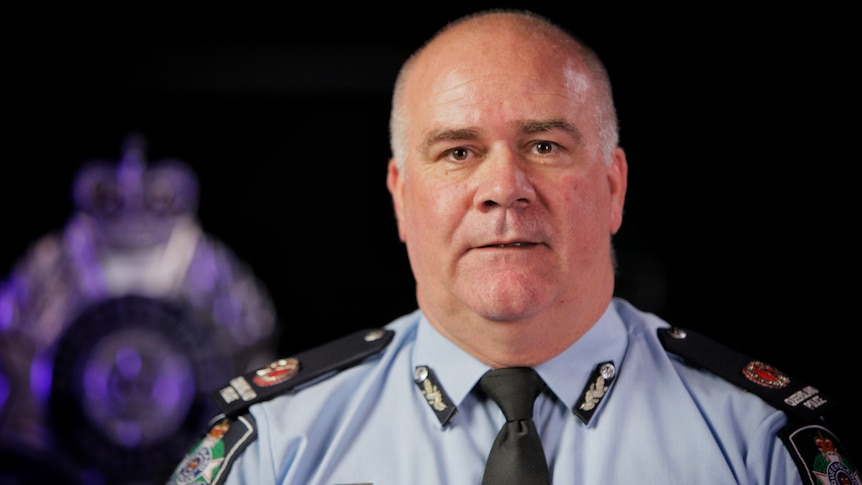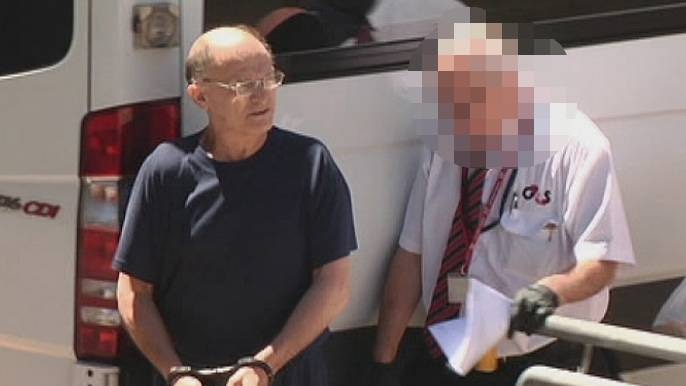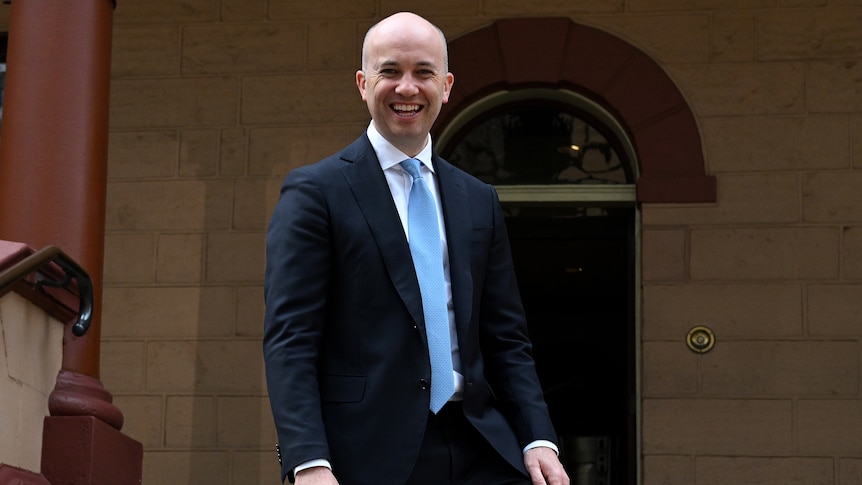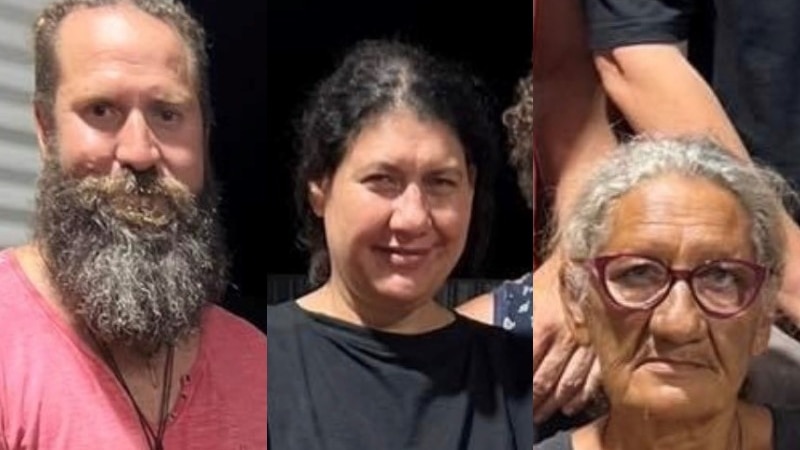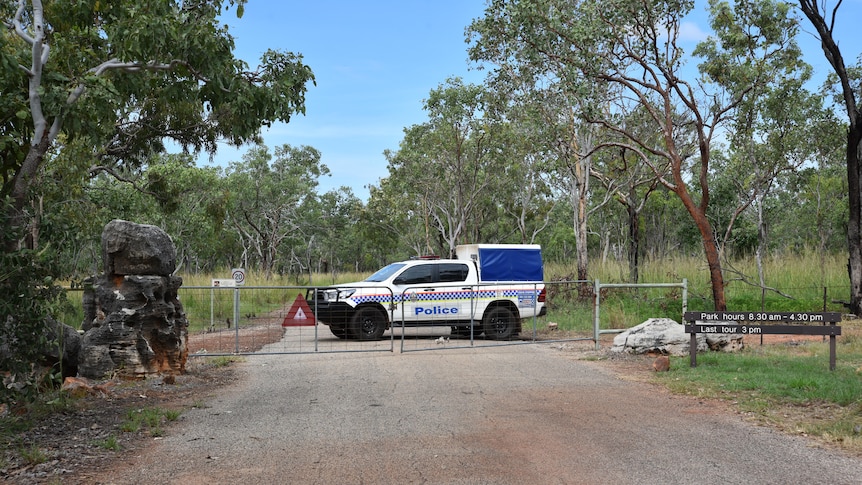There are “significant” cultural issues within the Queensland Police Service (QPS) affecting how officers respond to domestic violence, the state’s most senior officer in charge of domestic violence investigations has told an inquiry.
Key points:
- Assistant Commissioner Brian Codd says the majority of criticism of police cultural issues is “unchallenged”
- He told the inquiry inexperience, lack of training and officer burnout were contributing to poor culture
- Police data shows a major jump in strangulation cases and DVO breaches in the past five years
The commission of inquiry, which began on May 30, is examining the police response to domestic and family violence cases.
Headed by Judge Deborah Richards, it is also probing the over-representation of Indigenous people in the criminal justice system and the way corrupt conduct and complaints against police are handled.
The inquiry heard today from Assistant Police Commissioner Brian Codd, the head of the state’s domestic violence and vulnerable persons command, who gave his take on the evidence heard in the public hearings so far.
Counsel assisting the commission Ruth O’Gorman said the issues raised included officers avoiding DV call-outs, showing “disinterest” when attending call-outs, conducting “insufficient investigations” and misidentification of the victims and perpetrators.
“There are significant issues of police culture at play here that need to be addressed,” Assistant Commissioner Codd told the inquiry.
“We may have some members, albeit I hope very few, who do have some deeply misogynistic attitudes”
“I do accept that there are significant areas of concern that have been raised… that certainly will require us to look… beyond just isolated incidents.”
‘Pockets of issues’ around police culture
Assistant Commissioner Codd said he accepted “the majority” of evidence given relating to police culture was “unchallenged”.
“There’s very clearly in my view … pockets of issues of poor performance … behaviors and attitudes across our organization — aspects of culture that are impacting on our performance of our duty in DV,” Assistant Commissioner Codd told the inquiry.
“I certainly accept that the evidence provided has highlighted a range of concerning aspects of culture.
“It’s far from, in my humble opinion, the majority.
“But that doesn’t matter to a point, because whilst there’s still victims and people who need our help … [there’s a need for] focus and improvement.
“I do accept that there are significant areas of concern … that certainly will require us to look beyond just isolated incidents. There’s been too many consistencies in too many places.”
However, Assistant Commissioner Codd told the inquiry he did not believe cultural issues were “widespread” or “systemic” within the Queensland Police Service (QPS).
“I’d avoid the term ‘systemic’ because that suggests it’s absolutely through every part of our organization,” he said.
“I guess the observation I’d like to make though is the term about ‘widespread’ or ‘endemic’ that’s tied to it.
“I’m wary that almost every one of the witnesses, or certainly a number [of them,] …also made the point that it wasn’t their experience with every officer.”
He told the inquiry “a range of complex factors” were contributing to issues with police culture, including inexperience, lack of training and officer burnout.
Strangulation cases more than double in five years
Assistant Commissioner Codd also told the inquiry domestic violence strangulation had “progressively increased” from 1,060 reported occurrences in the 2016/2017 financial year to 2,145 in 2022/2023, according to QPS data.
He said domestic violence reports had also climbed from 89,458 in the 2016/2017 financial year to 138,551 in 2022/2023.
The inquiry heard breaches of domestic violence orders (DVOs) were another area of concern, increasing from 25,771 in the 2016/2017 financial year to 46,601 in 2022/2023.
“There’s been a significant increase there but, by the same token, it is perhaps a measure of us being better at identifying them,” he told the inquiry.
Assistant Commissioner Codd had previously told the inquiry in the first week of public hearings that the police service was struggling to keep up with demand, with officers spending more than 40 per cent of their time responding to domestic violence matters.
He said officers were overwhelmed and fatigued and were reporting high levels of burnout and psychological distress.
The QPS will not comment on specific issues raised during the hearings but has committed to work with the inquiry to “ensure that organizational values, standards of practice and responsibilities are being maintained and, where the opportunity arises, enhanced”.
Public hearings will continue in Brisbane tomorrow, before moving to Mount Isa for the inquiry’s final two days next week.
The inquiry will hand down its final report in October.
.
